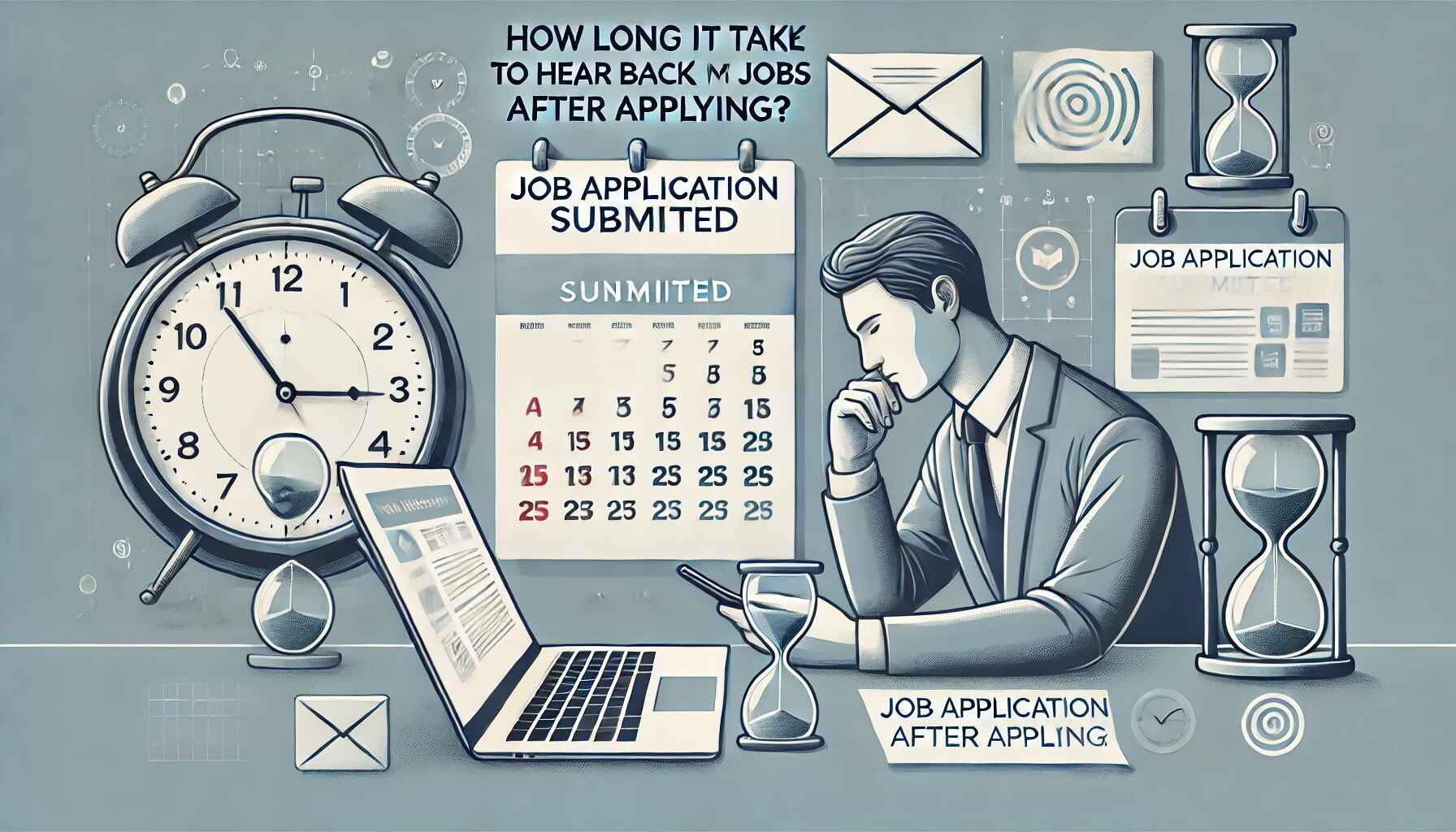How Long Does It Take to Hear Back From Jobs After Applying?
The process of applying for jobs can be both exciting and nerve-wracking. One of the most common questions job seekers have is, "How long does it take to hear back from jobs after applying?" While there is no one-size-fits-all answer, understanding the typical hiring timeline and factors influencing response times can help manage expectations.
The Typical Hiring Timeline
Understanding the Stages of Recruitment
The hiring process typically involves multiple stages, including application submission, initial screening, interviews, and final selection. Here’s a breakdown:
Application Submission: This marks the starting point. Recruiters often use software to filter resumes before manually reviewing applications.
Initial Screening: Depending on the role, this step may include phone interviews or skill assessments.
Interview Rounds: The number of interview rounds varies but often includes at least two stages: technical and cultural fit evaluations.
Final Decision: Once all interviews are complete, employers deliberate before making an offer.
Average Response Times Across Industries
Response times differ based on industry norms. For instance:
Technology: 1-2 weeks
Healthcare: 2-4 weeks
Education: 3-6 weeks
Retail and Hospitality: Often within days, especially for urgent openings
Factors Affecting Employer Response Time
Company Size and Structure
Larger companies may have a more bureaucratic hiring process, resulting in longer wait times. Startups, on the other hand, often move quickly due to leaner teams.
Type of Job Role
Specialized roles requiring unique qualifications tend to have longer timelines compared to general positions.
Time of Year and Economic Factors
The hiring pace can slow down during holidays or economic downturns. Conversely, periods of economic growth may see faster hiring processes.
Immediate Signs of Interest from Employers
Rapid Responses After Submission
Hearing back within a few days often indicates strong interest. Employers may fast-track candidates who meet their criteria perfectly.
Indicators of a Follow-Up Interview
Receiving detailed emails or invitations for additional steps in the process signals that you’re a strong contender.
Common Delays in the Hiring Process
Internal Business Constraints
Companies may face delays due to:
Budget approvals
Scheduling conflicts
Restructuring or organizational changes
Volume of Applications Received
High application volumes can overwhelm hiring teams, leading to slower response times.
How Applicants Can Improve Response Times
Optimizing Your Resume and Cover Letter
Tailor your application to highlight relevant skills and experiences. Use keywords from the job description to align with applicant tracking systems (ATS).
Following Up Effectively
Send a polite follow-up email 7-10 days after applying. Reaffirm your interest and inquire about the status of your application.
Why Some Applications Receive No Response
Automated Application Systems
Many companies use ATS to screen applications. If your resume doesn’t match key criteria, it may not reach a human recruiter.
Lack of Qualifications or Relevance
If your skills don’t align closely with the job requirements, employers may choose not to respond.
The Role of Networking in Speeding Up Responses
Leveraging Professional Connections
A strong network can provide insider information and boost your chances of securing an interview. Reach out to employees or recruiters at the company.
Referrals and Endorsements
Referrals from trusted sources can significantly speed up the hiring process. Employers often prioritize candidates recommended by their team.
What to Do While Waiting for a Response
Applying to Multiple Jobs Simultaneously
Avoid putting all your eggs in one basket. Continue applying to other opportunities to increase your chances.
Enhancing Your Skills
Use the waiting period to acquire certifications or improve relevant skills. This demonstrates initiative and keeps you prepared for future roles.
Managing Expectations and Rejections
Staying Positive During the Job Hunt
Rejections are a natural part of the process. Focus on the progress you’ve made and learn from each experience.
Learning from Feedback
Whenever possible, request feedback to identify areas for improvement in your applications or interviews.
Legal and Ethical Considerations in Hiring Timelines
Equal Employment Opportunity Laws
Employers must adhere to anti-discrimination laws, ensuring fair and unbiased hiring processes.
Ethical Hiring Practices
Transparency in timelines and communication reflects well on employers and fosters trust among candidates.
Industry Insights: Fastest and Slowest Hiring Sectors
High-Turnover vs. Specialized Roles
Positions in retail and hospitality often see quick hiring processes, while specialized roles in engineering or academia take longer.
Trends in Tech, Healthcare, and More
Tech companies are known for agile processes, while healthcare roles often require additional checks, like licensing verifications.
Tips for Recent Graduates and First-Time Job Seekers
Navigating Entry-Level Applications
Focus on transferable skills and internships to demonstrate potential. Highlight any relevant extracurricular activities.
Using Campus Resources Effectively
Leverage career centers, alumni networks, and job fairs to access exclusive opportunities.
Frequently Asked Questions About Job Response Times
Why Haven’t I Heard Back Yet?
Response delays may be due to high application volumes, internal constraints, or mismatched qualifications.
How Often Should I Follow Up?
Once every 7-10 days is reasonable. Avoid being overly persistent.
Can Networking Improve My Chances?
Yes, networking often leads to faster and more favorable responses.
Should I Apply Again if I Don’t Hear Back?
Unless stated otherwise, it’s generally acceptable to reapply after 6 months.
What If the Job Posting Disappears?
This may indicate that the position is filled or the hiring process is paused.
How Can I Stay Motivated During the Wait?
Focus on self-improvement, explore new opportunities, and stay optimistic about the process.
Tools and Resources for Job Seekers
Job Search Platforms
Popular platforms like LinkedIn, Indeed, and Glassdoor offer extensive job listings and networking opportunities.
Application Tracking Tools
Use tools like JibberJobber or Huntr to organize and monitor your applications effectively.
Final Thoughts on the Hiring Process Timeline
Balancing Patience and Proactivity
The key to navigating job applications is striking a balance between waiting patiently and taking proactive steps to enhance your chances.
Setting Realistic Goals
Establish achievable milestones in your job search to maintain focus and motivation.









